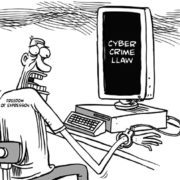TODAY, more Filipinos are tightening their belts to sustain themselves not only through the rainy days, but for as long as the prices of commodities continue to rise. Despite the tough economy, however, fewer Pinoys are labeling themselves as “poor,” according to a recent nationwide survey.
A non-government social and research institution, the Social Weather Station (SWS), recently published the results of its third quarter poll via the BusinessMirror on Sept. 24.
According to the survey, fewer Pinoy families are considering themselves poor. 47 percent (estimated at 9.5 million families) of the respondents claim they are poor — a 4 percent drop from the 51 percent in May. This is the first time this year that self-rated poverty level fell below 50 percent, according to SWS.
“The last time that self-rated poverty fell below 50 percent was in December last year [45 percent]. The record low is 43 percent, first hit in March 1987 and again in March 2010.”
When it came to food poverty, the number of respondents who claim food is scarce for them went down 4 notches – from 39 percent (7.9 million families) in May, to 35 percent in August.
Improvements were also seen in Mindanao, at 57 percent (from 65 percent); the same goes for the Balance of Luzon (38 percent from 43 percent) and Manila (35 percent from 41 percent), which have also seen positive self-rated poverty results.
The SWS also reported that people in Mindanao claim that they were less poor in terms of food, with a rate of 45 percent (from 57 percent). The same case goes for Balance of Luzon with 29 percent (from 32 percent).
Self-rated poverty scores in Visayas, however, went up — with a result of 63 percent (from 57 percent). A slight number of respondents in Visayas also claimed that they were poor when it came to food (with a score of 47 percent from 46 percent in May).
Meanwhile, Presidential Spokesperson Edwin Lacierda expressed Malacanang’s elation over the recent SWS poll results. In a press briefing at the Malacañang on Sept. 24, Lacierda said that the Aquino administration has been more inspired to combat poverty in the country. He further assured that the government will keep on implementing measures that would be benefit Filipinos.
However, SWS also said that the self-rated poverty threshold (or the monthly budget that poor households gauge their “poverty” from) is affected by “considerable inflation.”
In reality, “poor families have been lowering their living standards” and are still tightening their belts, said SWS.
The poll was conducted through face-to-face interviews with 1,200 respondents nationwide.
While surveys may be a good measure in gauging the economic state of a country, perception is still a very subjective variable. Beyond economics, cultural perspectives hold weight and also need to be factored in.
The old adage,”perception is reality,” still applies. The good news is, despite tough economic times, it is a positive sign that Pinoys are developing a more optimistic view about themselves.
However, there is a fine line between resiliency and complacency. Lowering the standard of living may be construed as a detriment to progress, instead of the other way around.
Though forward-thinking coupled with optimism may be the best way to go, we should strive to stay grounded and educated, instead of formulating an altered sense of reality.
(AJPress)




